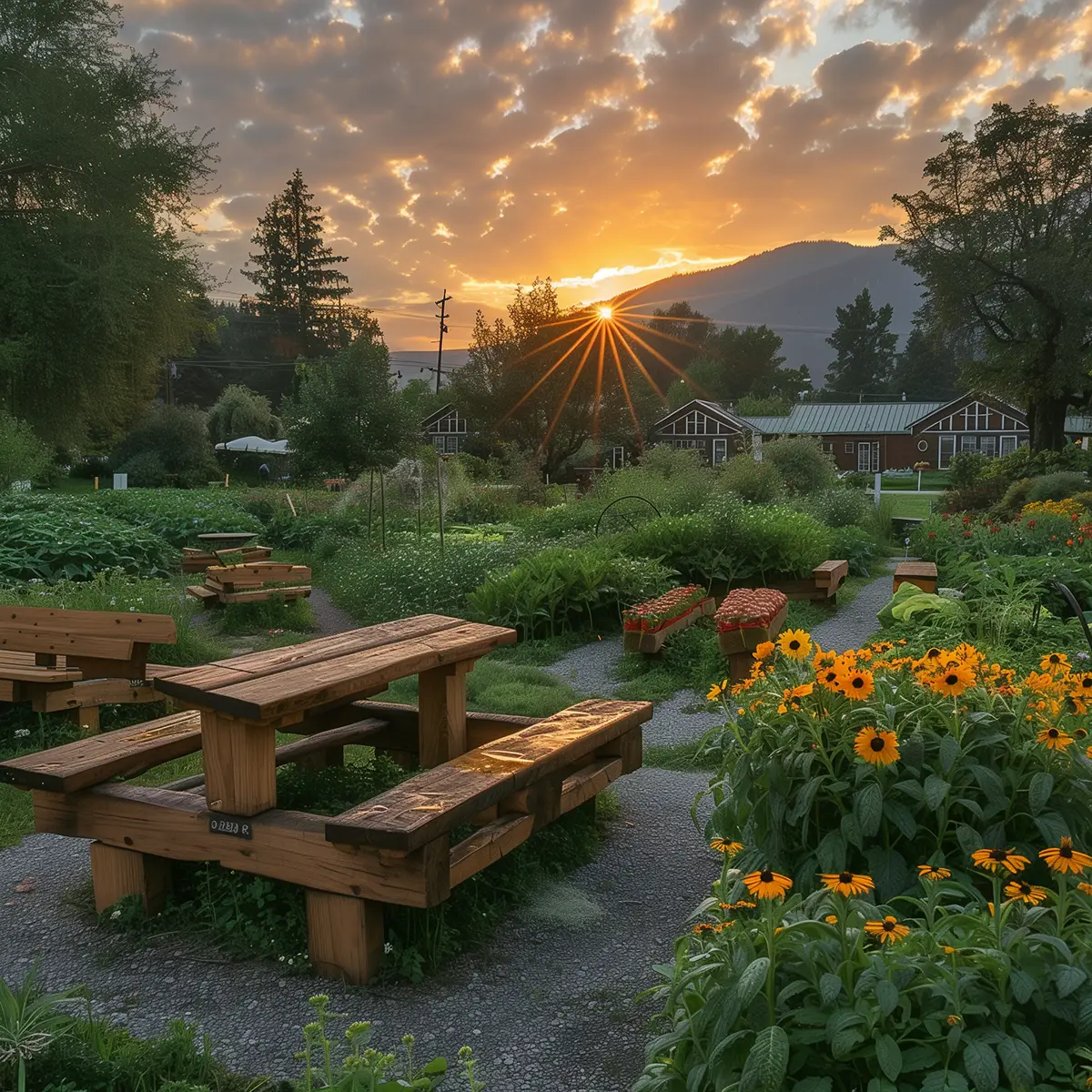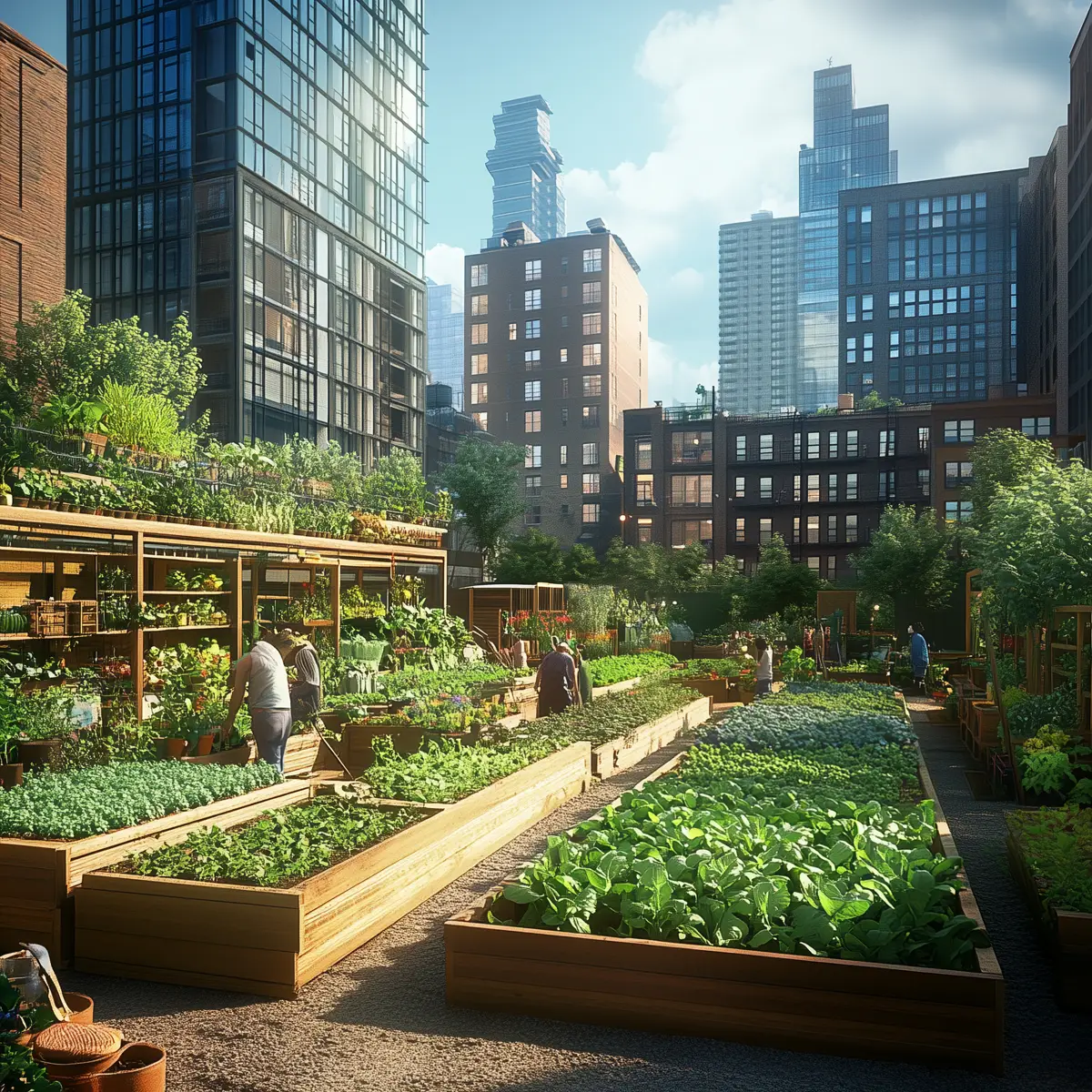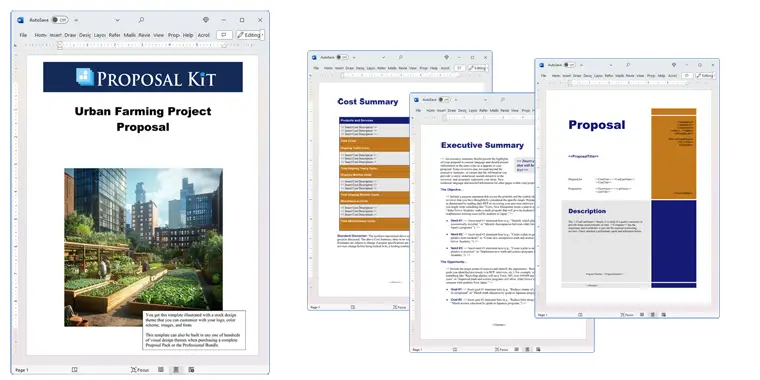How to write your Urban Farming Project Proposal
We include this 28 page layout with every Proposal Pack. If you want this template to have a different visual design theme than the one illustrated here, purchase any Proposal Pack design and create this template using the purchased design theme. This template is included in every Proposal Pack. If you get a Proposal Pack or the Professional, you can also make any variation of this template with different chapters to suit your needs.
We typically include more chapters in the templates than most people will need to give everyone more variety in the chapters they may need. You can trim down a long template by removing pages you do not need or combining multiple chapter topics into one page.
 DOWNLOADABLE, ONE-TIME COST, NO SUBSCRIPTION FEES
DOWNLOADABLE, ONE-TIME COST, NO SUBSCRIPTION FEESYou can also create countless variations of this document to suit your needs using the included library of 2200+ chapters if ordering a Proposal Pack or Professional.
 What Our Clients Say
What Our Clients SayI have a private business that requires me to consult with and advise new small business. I also serve as an Adjunct Professor at our local university and this tool makes it easy for me to help my clients and make the class easier for my students."
Small Business Risk Analyst
Related Article
Related Video
Related Templates
- Agricultural Grant Funding Proposal
- Leasing Property for Farming or Ranching Proposal
- Community Garden Project Proposal
- Agriculture and Ranching Grant Funding Proposal
- Crop Production Proposal
- Agriculture Operation and Production Proposal
- Automation of Facilities and Production Proposal
- Organic Farming Product Sales Proposal
- Agriculture Project Proposal Template
What's the Best Way to Write Your Urban Farming Project Proposal?
The Proposal Kit software and template package offer a proven solution for creating an urban farming proposal. By using the Proposal Kit, you gain access to a comprehensive library of templates and a user-friendly Wizard software program that guides you through the process. This system not only helps you outline your proposal but also incorporates a line item quoting database system to cover financial summaries, quotes, estimates, budgets, and more.
Do you need to write an urban agriculture initiative proposal or a similar project? If so, the Proposal Kit is designed specifically to meet your needs, making the process efficient and tailored to your objectives.
What Types of Projects Are Urban Farming Project Proposal Written For?
Urban farming projects can vary widely, each with unique goals and challenges. Here are some common types of projects that often require a well-structured proposal:
- Rooftop Gardens
- Community Vegetable Gardens
- Vertical Farming Installations
- Hydroponic Systems
- Urban Beekeeping
- Aquaponics Projects
- School Gardens
- Corporate Campus Greenhouses
- Public Park Food Forests
- Inner-City Green Spaces
- Farm-to-Table Initiatives
- Urban Orchard Development
- Urban Livestock Operations
- Composting Facilities
- Pollinator Pathways
- Urban Vineyard Projects
- Edible Landscaping
- Indoor Farming Facilities
- Green Wall Installations
- Urban Mushroom Cultivation
Chapters this template is built with
There is no one-size-fits-all premade template for an urban farming proposal that covers every situation, which is why the Proposal Kit is invaluable. Proposal Kit allows you to create custom proposals tailored to your specific project needs, with an extensive library of thousands of chapters to choose from. Below are some important chapters that can be customized to suit your urban agriculture initiative:
Cover Letter
The cover letter serves as your introduction to the proposal, highlighting key points and establishing rapport with the reader. An urban farming proposal should briefly explain the unique topics of your project, such as its community impact or innovative techniques, setting the tone for the rest of the document.
Introduction
This section outlines the purpose and scope of the project, providing a snapshot of what you aim to achieve. In an urban farming context, it can describe the project's relevance in addressing urban food security or sustainability challenges, setting a foundational understanding for the reader.
Executive Summary
Provide a concise overview of the project, capturing the most important details and making a case for your initiative. Focus on the project's expected outcomes, benefits to the community, and any unique features that differentiate your project from others.
Project Cost Summary
Present a detailed breakdown of the project's financial requirements, supported by the line item quoting database. This chapter should include estimated costs for land preparation, infrastructure development, and operational expenses, ensuring transparency about the financial topic of the project.
Next Steps
Guide your audience on what actions to take after reviewing the proposal to move the project forward. Highlight important milestones, such as securing funding or regulatory approvals, and suggest a timeline for implementing these steps.
Location Analysis
Evaluate the suitability of potential sites for the project, considering factors like accessibility and environmental conditions. In an urban setting, this could involve analyzing proximity to target markets, availability of utilities, and existing land use patterns.
Goals and Objectives
Clearly define the project's aims and the steps needed to achieve them, aligning with broader community or organizational goals. These could include goals like increasing local food production, educating communities about sustainable practices, or reducing urban heat through green spaces.
Funding Plan
Detail your financial strategy, including potential sources of funding and how funds will be allocated. This might involve a mix of grants, community investments, and revenue from produce sales, demonstrating a sustainable approach to project financing.
Site Planning
Describe the proposed layout and infrastructure topics important for the project's success. Include plans for areas designated for different types of crops, water management systems, and pathways for efficient movement within the farm.
Site Preparation
Discuss steps for preparing the chosen site, from clearing land to installing necessary utilities. Preparation might include soil testing, removal of debris, or laying the groundwork for infrastructure like greenhouses or irrigation systems.
Layout
Illustrate the spatial organization of the urban farm, including planting areas and pathways. This section should convey how the layout maximizes space, considers sun exposure, and facilitates efficient farm operations.
Yield
Estimate the expected output of the farm, considering types of produce and their respective quantities. Provide data on expected yields, perhaps drawing from similar successful projects, to give stakeholders a realistic picture of the project's potential output.
Zoning
Address zoning regulations and any legal requirements related to urban agriculture in the proposed area. This involves ensuring compliance with local laws that dictate how land can be used and any restrictions that might affect farming operations.
Regulations
List relevant local, state, or federal regulations that the project must adhere to. Cover topics such as permits for constructing structures, waste management requirements, and any certifications needed for food production.
Location
Provide a detailed description of the project site's geography and demographics. Highlight factors such as neighborhood characteristics, potential partnerships with local organizations, and access to distribution channels for produce.
Natural Resources
Analyze available resources like water, sunlight, and soil quality, crucial for the project's success. This might include evaluating the site's microclimate, water sources, and the suitability of the soil for various crops.
Raw Materials
Identify materials needed for construction and farming, from seeds to solar panels. Include considerations for sourcing sustainable materials to reinforce the project's commitment to eco-friendly practices.
Infrastructure
Discuss necessary infrastructure, such as greenhouses, irrigation systems, and storage facilities. Explain how each component supports efficient farm operations and contributes to the project's overall sustainability.
Community
Highlight how the project will engage with and benefit the local community. This could involve creating local jobs, providing educational workshops, or donating produce to local food banks.
Self-Sufficiency
Outline plans for achieving sustainability and minimizing external dependencies. Discuss strategies like rainwater harvesting, composting, or using renewable energy sources to reduce reliance on external inputs.
Agriculture
Present your farming methods and practices, emphasizing innovation and sustainability. Describe techniques such as vertical farming, organic practices, or the use of technology for monitoring crop health.
Projected Expenses
Offer a forecast of future expenses, ensuring long-term financial viability. This should include operational costs, maintenance, and potential expansion costs, providing a comprehensive financial outlook.
Recommendations
Provide expert insights or suggestions for project improvements and success. Draw on industry best practices to recommend strategies for optimizing production, increasing community engagement, or enhancing sustainability.
About Us
Share information about your organization, including mission and past achievements. Highlight any previous successful projects or partnerships that lend credibility to your proposal.
Facilities
Detail the facilities that will be used or constructed, describing their role in the project. This might involve outlining plans for building a community education center or a facility for processing produce and demonstrating how physical structures support project goals.
Use cases for this template
Securing Investor Confidence for Rooftop Greenery
The Challenge
In the heart of the city, Charlie, the visionary behind GreenRoots, found himself at a crossroads. His plan to transform neglected rooftops into lush, sustainable gardens required substantial financial backing. Convincing potential investors of the viability and benefits of such a venture in a crowded urban landscape was no small feat. With increasing competition for green initiatives, Charlie needed a standout proposal that clearly communicated his project's potential to generate environmental and social impact.
The Solution
Charlie discovered the Proposal Kit, a robust tool designed to streamline the proposal-writing process. With its array of templates specifically tailored for urban agriculture projects, Charlie was able to create a well-structured and comprehensive proposal. The software's intuitive interface and extensive resources allowed him to articulate his vision with clarity and precision. By using these templates, Charlie was able to highlight the innovative topics of his rooftop garden project and its alignment with urban sustainability goals.
The Implementation
With the Proposal Kit's assistance, Charlie customized his proposal to include important topics such as detailed location analysis, highlighting the placement of potential rooftop sites for maximum sun exposure and accessibility. He also created a funding plan showcasing both short-term gains and long-term sustainability. Charlie incorporated visuals and data to illustrate the environmental benefits, such as reduced urban heat through rooftop greening and increased biodiversity. The proposal's narrative was enriched with stories of community engagement and potential partnerships, painting a vivid picture of GreenRoots as a player in urban ecological restoration.
The Outcome
Charlie's comprehensive and visually compelling proposal captivated the investors' attention. Impressed by the thoroughness and potential impact of the project, they agreed to fully fund GreenRoots. The proposal not only secured the necessary financial backing but also established Charlie and GreenRoots as leaders in urban sustainability. The project soon became a model for other cities looking to integrate green spaces into their urban landscapes.
Racing the Clock for Indoor Agriculture Approval
The Challenge
At UrbanHarvest Inc., Samantha was handed a formidable task: write a complete proposal for an innovative indoor farming project, all under a tight deadline. Pressure mounted as the project was seen as to the company's future growth and sustainability initiatives. Samantha knew that the proposal needed to be comprehensive, highlighting financial viability, technical precision, and environmental benefits, all while adhering to the company's stringent quality standards.
The Solution
With time ticking away, Samantha turned to Proposal Kit to expedite the proposal-writing process. She also employed an AI writing tool to assist with generating text and analyzing existing company content. This combination provided a dual advantage: Proposal Kit offered the structural backbone and templates, while the AI tool helped populate these sections with relevant and contextually rich content derived from the company's own records and mission statements.
The Implementation
Using the Proposal Kit, Samantha efficiently organized her proposal, focusing on key sections such as the project cost summary and site planning. The AI writing tool proved instrumental in writing the introduction and executive summary, ensuring alignment with Urban Harvest's goals. Samantha integrated data-driven insights and projections that underscored the financial and environmental benefits of indoor farming. Visual aids and infographics were incorporated to enhance the narrative, making complex data easily digestible for stakeholders.
The Outcome
Samantha's proposal was submitted on time, earning swift approval from Urban Harvest's board. The meticulous, data-backed document not only met the deadline but also won unanimous support for the indoor farming project. Samantha's effective use of the Proposal Kit and AI tools demonstrated how technology can streamline proposal creation, ultimately securing vital resources and propelling Urban Harvest towards its sustainability goals.
Engaging Partnerships for a Community Green Space
The Challenge
As a director at GrowCity, Alex was committed to fostering urban agriculture and community engagement through the creation of a community vegetable garden. The project required a Request for Proposal (RFP) that would attract the right partners - those who shared the non-profit's vision for community development and sustainability. Alex needed a document that was both comprehensive and enticing, showcasing the potential for meaningful collaboration and community impact.
The Solution
Alex turned to Proposal Kit to aid in writing the RFP. The software's extensive library of templates provided a solid foundation for outlining the project's objectives and requirements. With its user-friendly interface, Proposal Kit allowed Alex to focus on the narrative and topics of the proposal, ensuring that it communicated the essence of GrowCity's mission and the unique opportunities the project presented.
The Implementation
Alex tailored the RFP to emphasize community engagement and sustainability - core values of GrowCity. He selected templates that allowed him to articulate the project's goals, the resources needed, and the expected outcomes with clarity. By weaving stories of previous successful projects and potential community benefits into the proposal, Alex painted a picture of what partnership in this venture could achieve. The RFP was designed to reflect professionalism and a commitment to excellence, setting a high standard for prospective partners.
The Outcome
The RFP generated significant interest, drawing responses from several organizations eager to collaborate with GrowCity. Alex's use of the Proposal Kit ensured that the RFP was not only professional but also aligned perfectly with GrowCity's mission, attracting partners who were equally passionate about community development and sustainability. The project soon kicked off with enthusiastic collaboration, setting the stage for a thriving community vegetable garden that promised to enrich the local urban fabric.
Conclusions and Recommendations
Creating a successful proposal for an urban agriculture project is made efficient and effective by using the Proposal Kit software and template library. The system's extensive resources, including customizable templates and a line item quoting database, support every topic of your proposal, from financial summaries to zoning regulations. Whether you're working on a rooftop garden or a community vegetable project, the Proposal Kit guides you in creating a professional document tailored to your project's specific needs.
Also Known As
This template may also be referred to in different ways or be used in more specialized situations, such as:
- Urban Agriculture Proposal
- City Farming Project Plan
- Urban Horticulture Proposal
- Sustainable Farming Project Outline
- Community Garden Proposal
- Urban Green Space Plan
- City Grow Project Proposal
- Urban Landscape Proposal
- Metropolitan Agriculture Plan
- Urban Cultivation Proposal
Abstract
 Urban farming initiatives play a vital role in advancing sustainable farming practices within urban areas, addressing challenges such as food insecurity, food deserts, and limited access to healthy food. By transforming vacant lots and underused spaces, these projects aim to improve food access and provide fresh produce to residents, local businesses, and local schools. Urban environments often face unique obstacles, including soil management, pest control, and the need for specialized equipment and training.
Urban farming initiatives play a vital role in advancing sustainable farming practices within urban areas, addressing challenges such as food insecurity, food deserts, and limited access to healthy food. By transforming vacant lots and underused spaces, these projects aim to improve food access and provide fresh produce to residents, local businesses, and local schools. Urban environments often face unique obstacles, including soil management, pest control, and the need for specialized equipment and training.
Through collaboration with community organizations and local governments, urban agriculture projects can develop effective strategies for sustainable agriculture, enhance environmental sustainability, and contribute to overall community well-being. Successful projects prioritize crop selection, hands-on training, and qualitative data to expand knowledge and ensure progress in healthy eating and self-sufficiency. By integrating topics such as efficient site planning, resource management, and community engagement, urban farming projects support the goal of providing fresh, nutritious food and fostering partnerships that empower communities. Tools like Proposal Kit help project leaders assemble complex documents, organize funding plans, and tailor proposals to address all critical topics - from zoning regulations and infrastructure to projected yields and educational outreach. The collective effort of residents, local organizations, and stakeholders is important to expand the reach and impact of sustainable urban agriculture.
Urban farming projects are increasingly important in urban environments where populations are dense and access to fresh produce is often limited. These initiatives not only help to alleviate food insecurity in food deserts but also promote healthy eating habits by making healthy food more available and affordable. By involving local governments, community organizations, and residents, urban agriculture can create jobs, offer hands on training, and foster valuable skills in soil management, pest control, and equipment use.
 Urban farms also present opportunities for qualitative data collection, allowing stakeholders to monitor progress and refine crop selection for maximum impact. Additionally, collaboration with local schools and businesses strengthens community well-being, while targeted training expands knowledge about sustainable agriculture and environmental sustainability. Tools like Proposal Kit support these efforts by streamlining the creation of tailored proposals, allowing users to efficiently develop comprehensive plans that address every topic of urban farming - from site planning and resource allocation to infrastructure and community engagement. This structured approach helps leaders attract funding and drive positive change, ultimately transforming vacant lots and neglected areas into vibrant sources of fresh food and opportunity.
Urban farms also present opportunities for qualitative data collection, allowing stakeholders to monitor progress and refine crop selection for maximum impact. Additionally, collaboration with local schools and businesses strengthens community well-being, while targeted training expands knowledge about sustainable agriculture and environmental sustainability. Tools like Proposal Kit support these efforts by streamlining the creation of tailored proposals, allowing users to efficiently develop comprehensive plans that address every topic of urban farming - from site planning and resource allocation to infrastructure and community engagement. This structured approach helps leaders attract funding and drive positive change, ultimately transforming vacant lots and neglected areas into vibrant sources of fresh food and opportunity.
Urban agriculture has become a key response to the growing demand for sustainability and local food systems in urban environments. As city populations rise, the pressure on traditional food supply chains increases, leading to more frequent cases of limited access to nutritious options. Innovative urban farming methods, such as vertical farming and hydroponics, allow the use of small or unconventional spaces, turning rooftops and vacant lots into productive assets for the community. These projects not only provide fresh produce but also contribute to environmental sustainability by reducing the carbon footprint associated with transporting food from rural farms to urban centers.
Urban farming proposals often address a wide range of stakeholders, including local governments seeking to revitalize neighborhoods, schools aiming to provide hands-on training in sustainable agriculture, and local businesses interested in sourcing fresh, local ingredients. By prioritizing soil management, effective pest control, and thoughtful crop selection, these initiatives ensure long-term productivity and healthy yields. Community organizations play an important role in outreach, education, and mobilizing volunteers, which helps to expand the pool of residents engaged in sustainable farming practices.
 Moreover, urban agriculture fosters social cohesion and community well-being by creating shared green spaces and hosting educational workshops. The qualitative data collected from these projects helps measure success beyond just crop output, providing valuable insights into resident participation, knowledge gained, and improvements in healthy eating habits. By using a comprehensive planning Proposal Kit, urban farming advocates can develop clear, compelling proposals that detail every topic of project implementation and progress. This thorough approach increases the likelihood of securing support and investment, ensuring urban farming remains a viable and expanding solution for sustainable food access in modern cities.
Moreover, urban agriculture fosters social cohesion and community well-being by creating shared green spaces and hosting educational workshops. The qualitative data collected from these projects helps measure success beyond just crop output, providing valuable insights into resident participation, knowledge gained, and improvements in healthy eating habits. By using a comprehensive planning Proposal Kit, urban farming advocates can develop clear, compelling proposals that detail every topic of project implementation and progress. This thorough approach increases the likelihood of securing support and investment, ensuring urban farming remains a viable and expanding solution for sustainable food access in modern cities.
Frequently Asked Questions
How do I start writing an urban farming proposal?
Starting an urban farming proposal begins with clearly defining the project's goals, scope, and objectives. It's crucial to understand what you aim to achieve and how it aligns with local community needs and sustainability goals. Proposal Kit provides a robust set of templates that help you organize these initial thoughts into a structured document. By following a logical sequence, you can ensure that all critical topics of your urban farming initiative are addressed, laying a solid foundation for the entire proposal.
What financial details should be included in an urban farming proposal?
In an urban farming proposal, financial details such as a project cost summary, funding plan, and projected expenses are important. These sections provide potential investors or stakeholders with a clear picture of the financial requirements and expected returns. The Proposal Kit's line item quoting database is an invaluable tool for creating detailed and accurate financial sections, ensuring that all costs, from initial site preparation to ongoing maintenance, are thoroughly covered. This transparency can significantly bolster your proposal's credibility.
How can I ensure my urban agriculture proposal meets zoning and regulatory requirements?
Meeting zoning and regulatory requirements is a fundamental topic of a successful urban farming proposal. It involves researching local laws and regulations related to urban agriculture, which can vary significantly by location. Using the Proposal Kit, you can include specific chapters that focus on zoning and regulatory compliance, helping you present this information comprehensively and clearly. This not only demonstrates due diligence but also reassures stakeholders that your project is legally and feasibly sound.
How does Proposal Kit help with proposal customization?
Proposal Kit excels in helping you customize your urban farming proposal to fit specific project needs. With its extensive library of templates and chapters, you can tailor your proposal to address unique topics of your project, such as community engagement or innovative farming techniques. This flexibility allows you to highlight the distinct features of your proposal, ensuring it stands out and meets the exact expectations of your audience or stakeholders.
What should I highlight in the executive summary of my urban farming proposal?
The executive summary of an urban farming proposal is an important section designed to capture the reader's attention and provide them with a succinct overview of your project. Here, it's important to highlight the purpose, anticipated benefits, and financial implications of the project. Including compelling data or quotes can also strengthen your argument. With Proposal Kit, you can create an executive summary that communicates the core message of your proposal, setting a positive tone for the rest of the document.
20% Off Discount
![]() Add To Cart This Word Template
Add To Cart This Word Template
 Add To Cart Proposal Pack for Any Business
Add To Cart Proposal Pack for Any Business
 Add To Cart Proposal Kit Professional
Add To Cart Proposal Kit Professional
 4.7 stars, based on 849 reviews
4.7 stars, based on 849 reviewsProposal Kit chapters used in this template
Cover Letter, Title Page, Table of Contents, Introduction, Executive Summary, Goals and Objectives, Agriculture, Self-Sufficiency, Community, Location, Yield, Layout, Location Analysis, Infrastructure, Facilities, Site Planning, Site Preparation, Raw Materials, Natural Resources, Regulations, Zoning, Projected Expenses, Funding Plan, Project Cost Summary, Recommendations, Next Steps, About Us, Back Page
Line Item Automated Chapters
If you purchase a Proposal Pack or the Professional Bundle, these proposal pages are generated using an automated line-item database in the included Wizard software.
Project Cost Summary
You use this proposal for
- General business proposal
- Non-technical proposal
- Project pitch proposal
- Non-government grant, non-profit, NGO proposal
- Spiritual, church, community proposal
- Food, beverage, catering, grocery proposal
- Agricultural proposal
How to create this template with Proposal Pack Wizard
You can create this document using any of the logo-designed Proposal Packs. Pick any Proposal Pack with a logo design theme you like best; they will all work equally well. The Proposal Pack for Any Business is the pack with no extra added logos or colors - designed to be used plain or for you to customize with your logos and graphics.
The Proposal Pack design theme you purchase will determine the visual look of this template. The screenshot above only shows the plain generic design theme.
We include a library of chapters to be assembled based on your needs. All proposals are different and have different needs and goals. We designed Proposal Pack so you can customize the documents to suit your needs.
You will best create this document using the Proposal Pack Wizard - Expert Edition software to select this template and build it in the Proposal Pack logo design theme of your choice along with any desired customizations (such as adding additional chapters, removing unneeded chapters, changing the order of chapters, and importing your company logo). This template outlines a proposal for the described situation. Each user is responsible for typing in the actual content of the provided pages with their information to complete the proposal. Suggestions in the abstract may include features in higher-end packages and are facilitated by the selection of chapter templates to support the narrative of each proposal, which help guide the user in filling in the details.
The Wizard software's AI Writer will write the content of the pages of the template based on details provided for your company, client, project, financial details and other writing instructions. This will provide a personalized version of the template completely written and ready to edit.
Once finished, the AI Writer's Word-to-PowerPoint converter can transform your proposal, business plan, or other business documents into a PowerPoint slideshow. Save time and effort by letting the AI analyze every chapter to condense its content into talking points, visually matching the document, and providing a consistent package of presentation material with the click of a button.
You create this template using the Wizard software with an entire Proposal Pack library and software. We include the Expert Edition of the software in the Proposal Kit Professional. Microsoft Word for Windows is required to use the customizing software. You can also edit Word document templates in other office software such as Word for Mac. We will assist Mac users in assembling complex templates for their first project if they do not have the required platform to run the Wizard software.
How to Build Templates Featured on Proposal Kit Website
Many people find the Proposal Kit website after searching for a specific proposal. Once you've purchased and installed the software, how do you build that template you found in the first place? This video shows you how to build any proposal you see on the Proposal Kit website.
 Ian Lauder has been helping businesses write their proposals and contracts for two decades. Ian is the owner and founder of Proposal Kit, one of the original sources of business proposal and contract software products started in 1997.
Ian Lauder has been helping businesses write their proposals and contracts for two decades. Ian is the owner and founder of Proposal Kit, one of the original sources of business proposal and contract software products started in 1997.By Ian Lauder
 Published by Proposal Kit, Inc.
Published by Proposal Kit, Inc.


 Cart
Cart
 Get 20% off ordering today:
Get 20% off ordering today: 


 Facebook
Facebook YouTube
YouTube Bluesky
Bluesky Search Site
Search Site